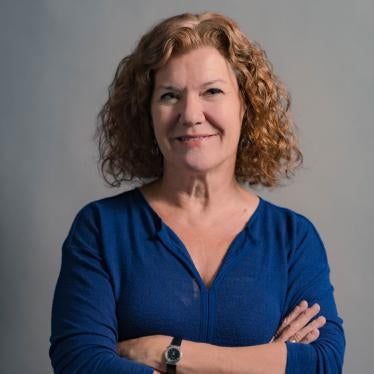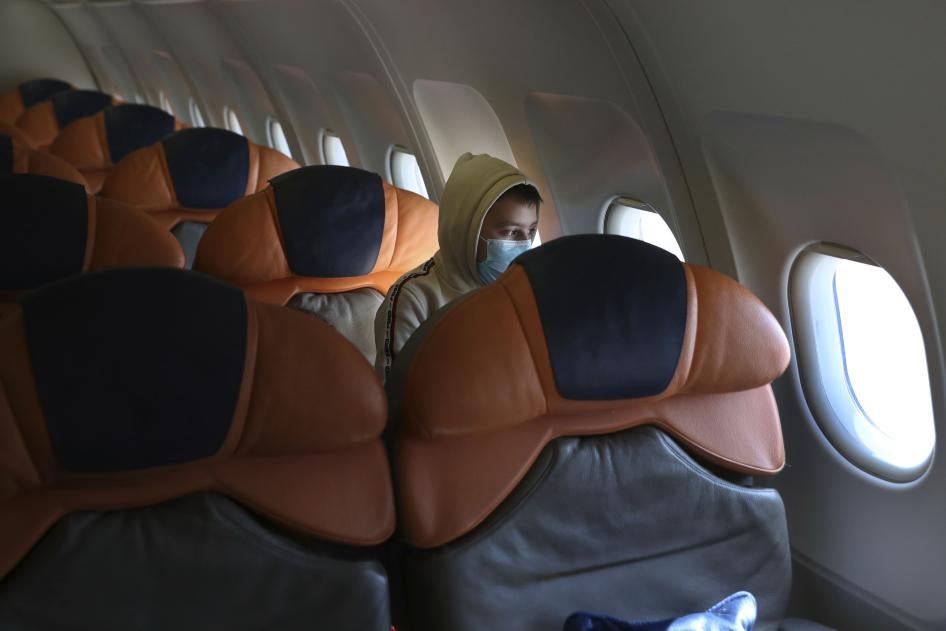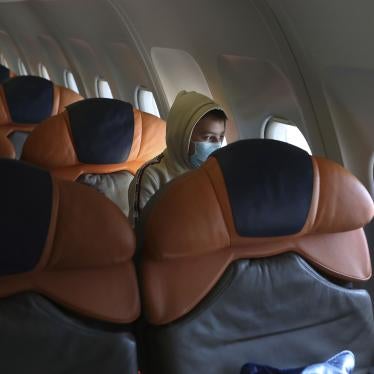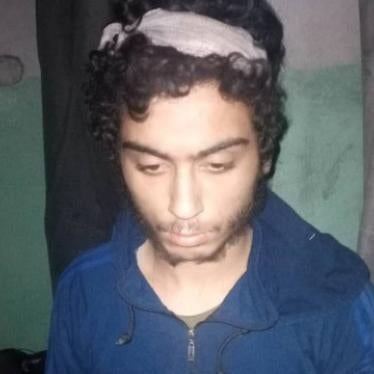“Miriam” is eight. She loves painting, swimming, and playing football, and is so excited to go to school every morning that that she wakes up early to pack her own bag.
Today, she lives with her mother and siblings in Sweden. But just a year ago, she was detained in a camp in northeast Syria for family members of Islamic State (ISIS) suspects.
Over the past year, I’ve interviewed and surveyed family members, teachers, social workers, and mental health professionals about approximately 100 children repatriated from the camps in northeast Syria who are now living in Western Europe and Central Asia.
What I found was that most of the children are doing well in school, and some are at the top of their class. They enjoy typical childhood activities like playing with their friends, cycling, and going to the zoo. I learned about a 12-year-old boy in Kazakhstan who competes in volleyball tournaments, and a 7-year-old girl in Germany who loves to jump on the trampoline. A grandmother in France told me that her 8-year-old grandson is fascinated with dinosaurs and wants to be an archeologist when he grows up.
The squalid, locked camps where these children were detained still hold about 38,000 foreign nationals, mostly the wives and children of male ISIS suspects. More than 60 percent of them are children. While most detainees are from neighboring Iraq, more than 10,000 are from about 60 other countries.
Last month, the Albanese government began to fulfill their pledge to take responsibility for their citizens and repatriated 4 Australian women and 13 children who had spent years languishing In the camps.
Australia finally joined countries like Denmark, France, Netherlands, Finland, Germany, Kazakhstan, Kosovo, Russia, Sweden, Tajikistan, Ukraine, the United States, and Uzbekistan, who have repatriated women and children detained in northeast Syria.
But an estimated 30 or more Australian children and 16 Australian women remain trapped in these camps.
Our new research about the successful reintegration of these children in other countries provides further evidence of why these remaining families need to be brought home as soon as possible, and that they have a high chance of successfully adapting to life in Australia.
Understandably, some repatriated children struggle and need ongoing psychosocial support. Many witnessed violence while living under ISIS and endured life-threatening conditions in the camps. Many of their fathers were killed in battles or are imprisoned in Syria. Some have lost their mothers as well. But I found that despite enduring incredible suffering, many children are reintegrating remarkably well.
Australia is well-equipped to accept the remaining women and children in the camps. Every year, it accepts thousands of refugee families who, like children in the camps, have often experienced displacement, conflict-related violence, family separation or loss, and interrupted schooling. And as Australian authorities have firmly reiterated, returning adults will be investigated and prosecuted if warranted.
Attempts by some Australian opposition politicians to try and get political mileage out of this issue in recent weeks has been disappointing. As Australian experts have made clear, the greatest danger for Australia is not accepting the return of children from the camps in northeast Syria. It’s leaving them there.
Meanwhile, conditions in the camps in northeast Syria are getting worse. Hundreds of children have died, many from preventable diseases, malnutrition, and hypothermia. Violence has dramatically escalated as ISIS loyalists attack other detainees, camp authorities, and aid workers. Just last week, two young Egyptian girls were reportedly found in the camp, beheaded and their bodies dumped in the sewage system. ISIS also targets children in the camps for recruitment.
The northern hemisphere winter is coming. Soon temperatures in the camp will reach near freezing, and I fear that if the remaining children are not rescued soon, we could see another death, as was seen earlier this year with the reported death of 17-year-old Australian boy Yusuf Zahab.
You can tell a lot about a country about how it treats its most vulnerable people. Prime Minister Albanese has made a good start, but there are still 30 more Australian children awaiting their chance for a safe and dignified childhood.
They need to come home too.










